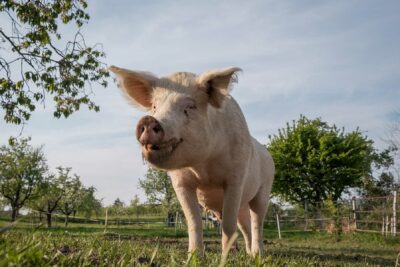We believe that all social justice movements are connected, and environmental justice is where harm to the environment and harm to people intersect.
What Is Environmental Justice?
Environmental justice is a social justice movement that exposes and addresses the ways in which marginalized communities are more often negatively impacted when the environment is damaged. Such damage can be caused in any number of ways, and by any number of industries, but there are some industries renowned for routinely harming the climate, polluting the world’s waterways, and creating air pollution. And one of the worst is animal agriculture.
How Did the Environmental Justice Movement Arise?
According to Client Earth, the environmental justice movement arose in 1980s America, after the state of North Carolina decided to bury toxic waste at a landfill site in Warren County — a predominantly Black community. The resulting protests reached the national media, and exposed publicly how low-income, minoritized communities are disproportionately affected by toxic waste and pollution.

What Are Environmental Justice Principles and Ethics?
The 17 principles of environmental justice were officially adopted at the 1991 National People of Color Environmental Leadership Summit. In their own words, they are:
- Sanctity of Earth
Environmental justice affirms the sacredness of Mother Earth, ecological unity and the interdependence of all species, and the right to be free from ecological destruction.
- Unbiased Public Policy
Environmental justice demands that public policy be based on mutual respect and justice for all peoples, free from any form of discrimination or bias.
- Ethical Land Use
Environmental justice mandates the right to ethical, balanced and responsible uses of land and renewable resources in the interest of a sustainable planet for humans and other living things.
- Universal Protection from Pollutants
Environmental justice calls for universal protection from nuclear testing, extraction, production and disposal of toxic/hazardous wastes and poisons and nuclear testing that threaten the fundamental right to clean air, land, water, and food.
- Self-Determination for All
Environmental justice affirms the fundamental right to political, economic, cultural and environmental self-determination of all peoples.
- Polluters Must Cease
Environmental justice demands the cessation of the production of all toxins, hazardous wastes, and radioactive materials, and that all past and current producers be held strictly accountable to the people for detoxification and the containment at the point of production.
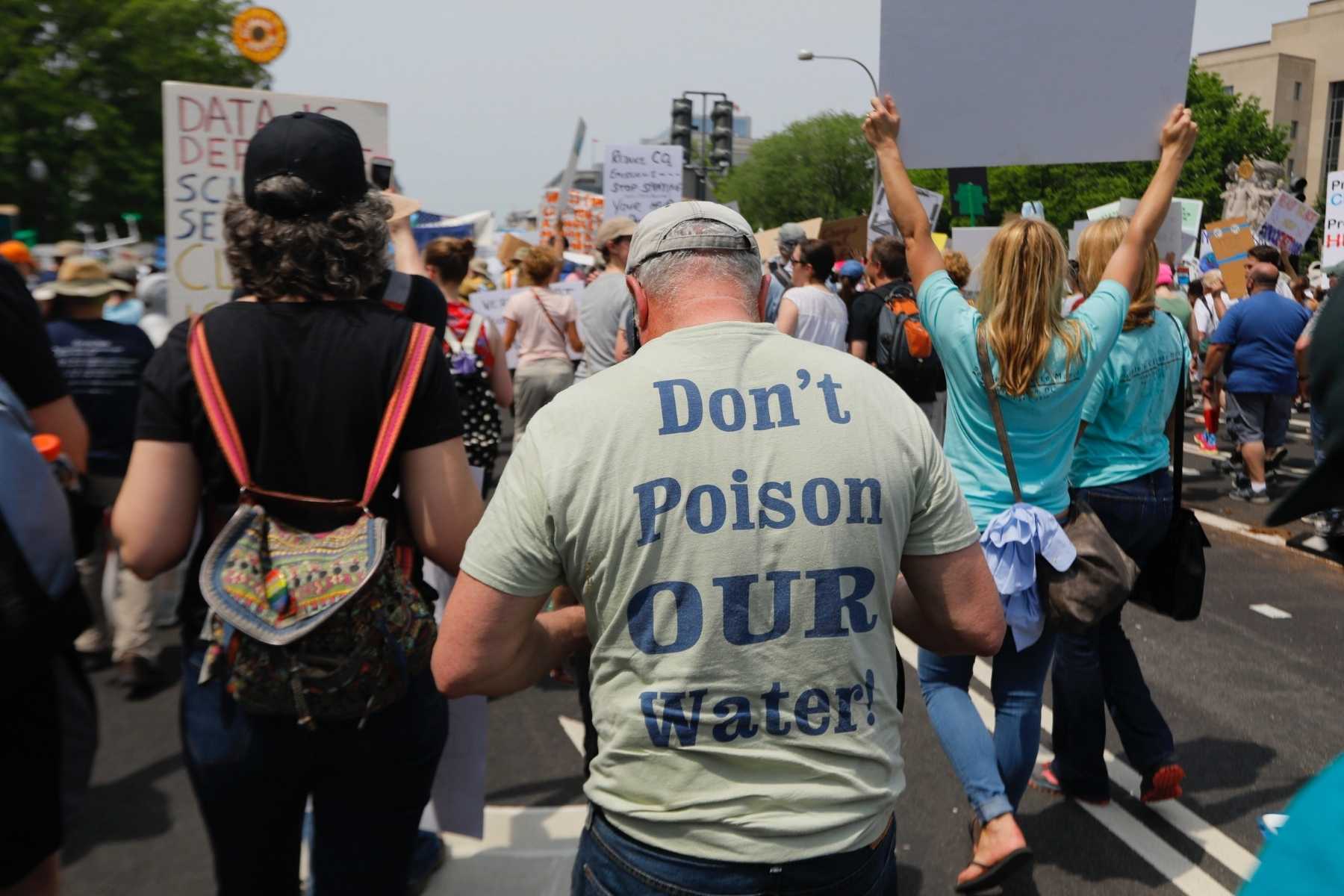
- Democratic Decision-Making
Environmental justice demands the right to participate as equal partners at every level of decision-making including needs assessment, planning, implementation, enforcement and evaluation.
- Safe Working Environment
Environmental justice affirms the right of all workers to a safe and healthy work environment, without being forced to choose between an unsafe livelihood and unemployment. It also affirms the right of those who work at home to be free from environmental hazards.
- Compensation and Reparation
Environmental justice protects the right of victims of environmental injustice to receive full compensation and reparations for damages as well as quality health care.
- Breaking International Law
Environmental justice considers governmental acts of environmental injustice a violation of international law, the Universal Declaration On Human Rights, and the United Nations Convention on Genocide.
- Sovereignty of Indigenous Peoples
Environmental justice must recognize a special legal and natural relationship of Native Peoples to the U.S. government through treaties, agreements, compacts, and covenants affirming sovereignty and self-determination.
- Cultural Integrity of Communities
Environmental justice affirms the need for urban and rural ecological policies to clean up and rebuild our cities and rural areas in balance with nature, honoring the cultural integrity of all our communities, and providing fair access for all to the full range of resources.
- Informed Consent Is a Must
Environmental justice calls for the strict enforcement of principles of informed consent, and a halt to the testing of experimental reproductive and medical procedures and vaccinations on people of color.
- Multinational Corporations
Environmental justice opposes the destructive operations of multinational corporations.
- Military Occupation and Repression
Environmental justice opposes military occupation, repression and exploitation of lands, peoples and cultures, and other life forms.
- Diversity Education
Environmental justice calls for the education of present and future generations which emphasizes social and environmental issues, based on our experience and an appreciation of our diverse cultural perspectives.
- Personal Choices Matter
Environmental justice requires that we, as individuals, make personal and consumer choices to consume as little of Mother Earth’s resources and to produce as little waste as possible; and make the conscious decision to challenge and reprioritize our lifestyles to insure the health of the natural world for present and future generations.
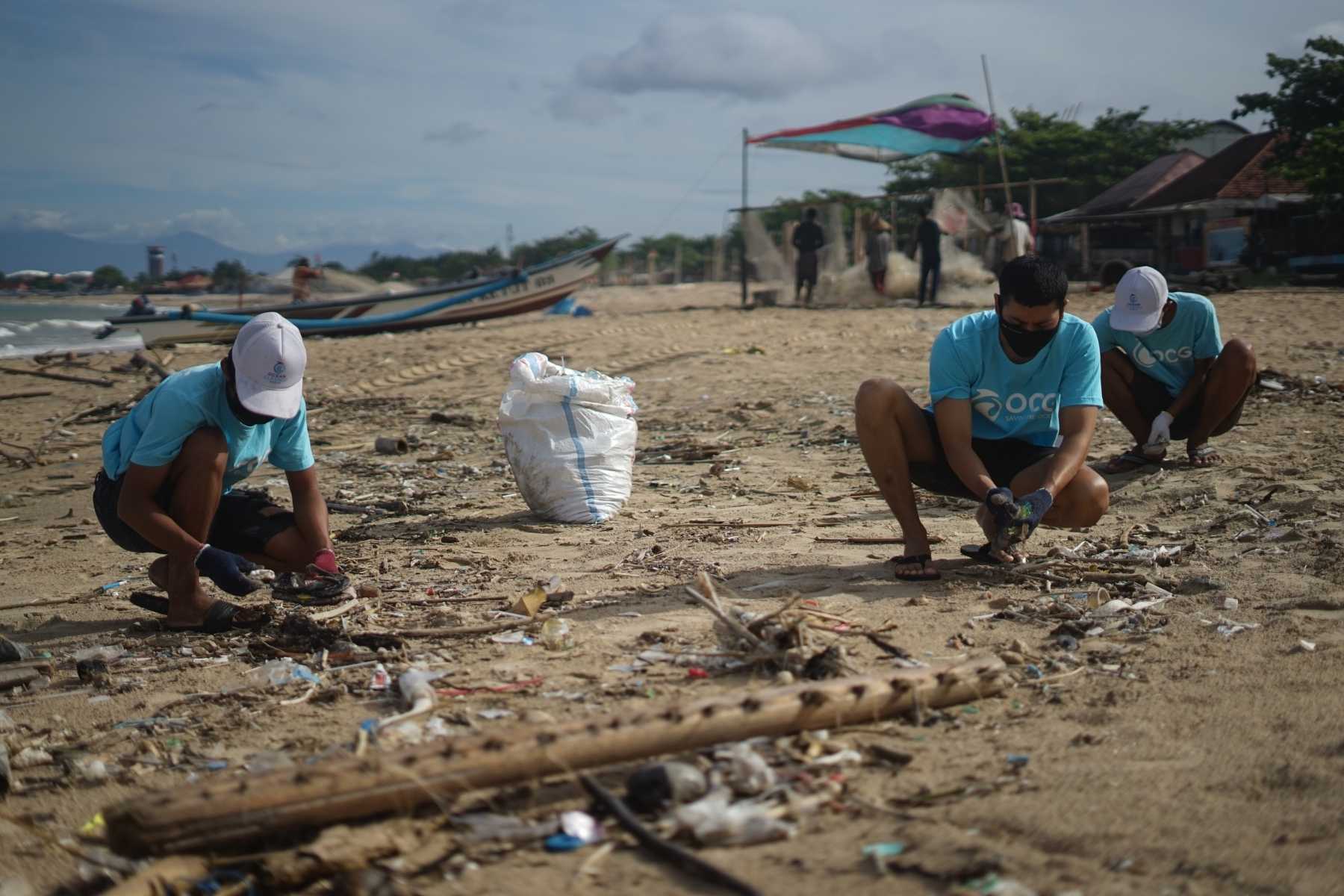
What Is the Main Focus of Environmental Justice?
The focus is to protect our planet, and ensure a just distribution of resources, while not burdening minoritized communities with negative outcomes caused by environmental damage.
The health of our planet and the health of people are inextricably entwined. When the air is polluted, respiratory diseases can increase; when industrial toxins are dumped into an environment, congenital disabilities may rise; when wild habitats are destroyed, novel pathogens may spread; when vast tracts of forests are destroyed, the resulting climate change impacts affect the world’s poorest first.
Environmental justice recognizes that we can only flourish if the environment is healthy, and that requires us to consume less and differently, and to demand better regulations from decision-makers.
One of the most impactful and immediate ways we can protect the planet is through our food choices. Research has shown that meat, eggs, and dairy, are worse for the planet in every environmental metric than eating plant-based foods. That includes: climate impact, air and water pollution, water use, land use, deforestation, and protection of wild species.
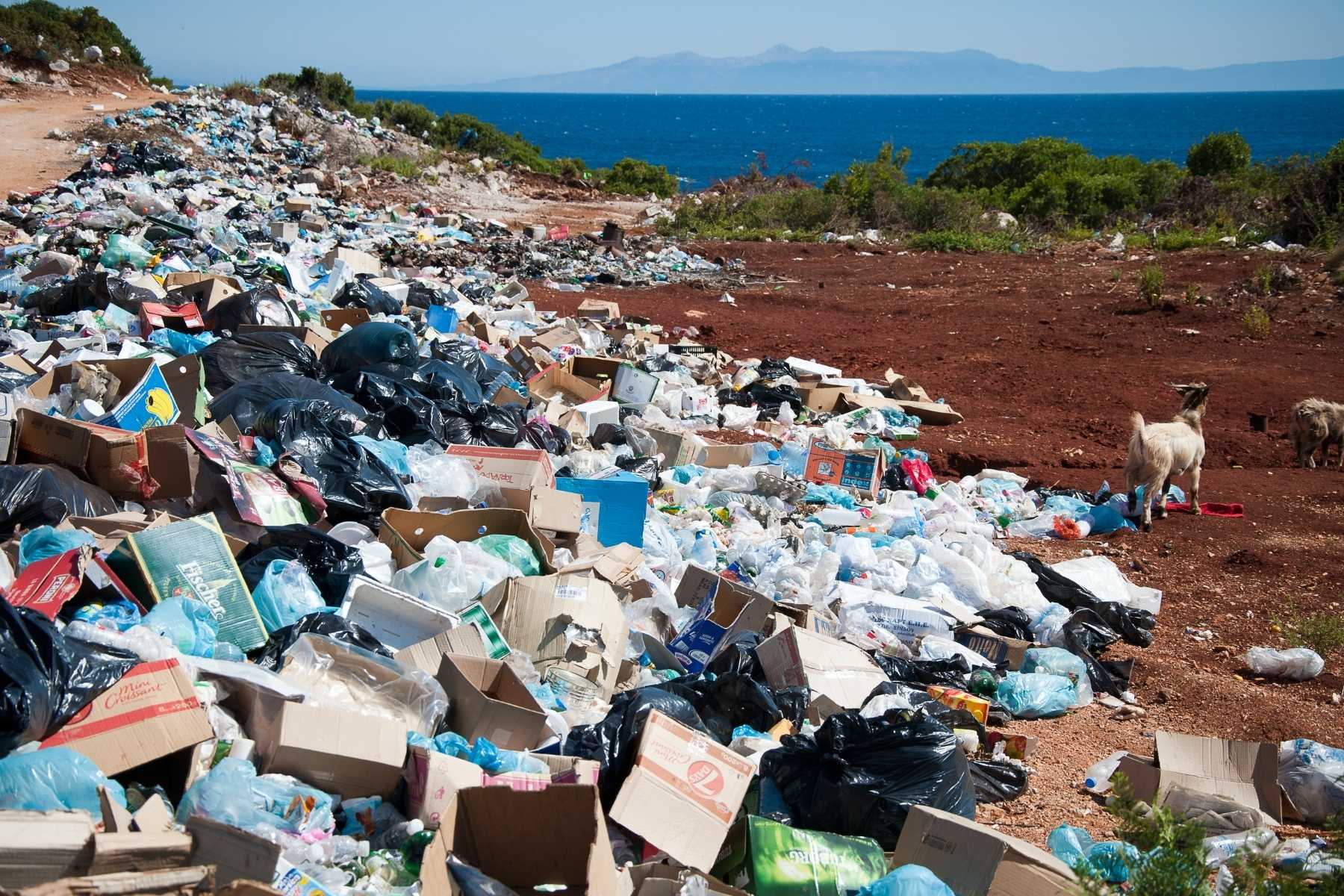
Why Is Environmental Justice Important?
This planet is extraordinary. It supports an immense diversity of life by maintaining a habitable temperature, healthy soil, waters, and clean air. It gives us everything we need to be healthy, but human activity over the last 200 years has seriously damaged its ability to maintain balance. As a result, life is being lost at an alarming rate: plant species are going extinct; 60 percent of all wild animal populations have died out since 1970; while people are also losing their homes, livelihoods, and lives.
Environmental justice is important because we all need the same thing to survive: a healthy planet. And we each have a responsibility to curb our consumerism, and to ensure we are not inadvertently helping to trash the planet. We also have a duty to speak out against industries that cause harm.
Environmental Justice and Climate Change
If we don’t change, climate breakdown will directly affect — and may kill — all of us. For those who are not yet impacted by the heating of our atmosphere, this can feel like a dramatic statement, but there are communities who have already lost everything because of devastating floods, fires, and famines driven by climate change. The communities suffering the worst impacts tend not to be the major consumers of the world’s resources. In short, they do not cause the problem, but they pay the price for it.
Columbia Climate School has written about how communities of color in America are already disproportionately affected by climate change, an outcome that will only worsen as the planet continues to heat. This includes disadvantaged communities already experiencing higher rates of health conditions that increase with global warming. Disadvantaged communities are also more likely to lack sound infrastructure and resilience, so when severe weather events occur, they are less able to withstand the effects. These are just two ways that communities in the US are already affected but of course, communities all around the world are also suffering.
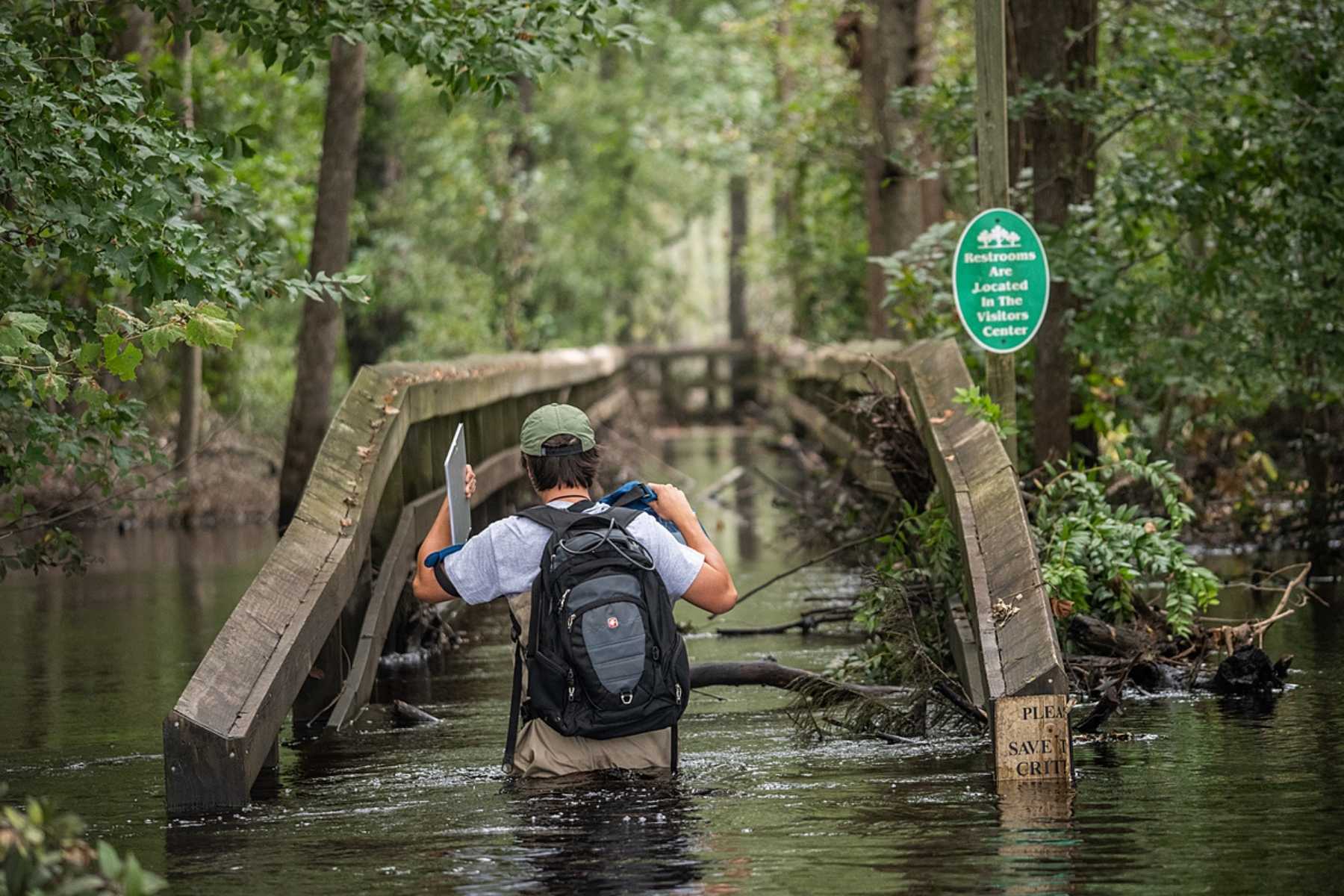
Environmental Justice Examples
Sadly, there are countless examples of where our damage to the planet is also harming people. They include:
North Carolina’s Polluting Pig Industry
Around nine million pigs are farmed in North Carolina, and they produce over 10 billion gallons of waste every year. This slurry is toxic to the environment, and causes physical discomfort and distress to those who live nearby. Industrial farms like these tend to be concentrated within communities of color, and increase reports of asthma and other respiratory disorders.
Unsafe Water in Michigan
In 2014, the drinking water of Flint, Michigan, started to look, taste and smell strange. Showering in it was associated with skin rashes and hair loss. And then, E coli was detected in it, indicating the water was contaminated with the feces of people and / or farmed animals. It also contained cancer-causing chemicals. The community organized and took on the authorities, who had repeatedly insisted that all was well. At least 12 people died as a result.
Pacific Islands Unable to Produce Food
Two of the nine Pacific islands of Tuvalu are being lost to rising sea waters, and there are fears of a mass displacement of people in the coming years. Already, the salty waters have contaminated underground water supplies, leaving inhabitants totally reliant on rainwater, even though droughts are now more common. The salination of the land has also made it impossible to grow staple crops like taro and cassava.
Living With Landfill
Societies that produce a lot of waste need to manage it, but burying waste in the ground does not make it go away. Emissions from landfills continue to pose a threat to the health of those who live and work nearby. A New York study found a 12 percent increased risk of congenital malformations in children born to families that live within a mile of a hazardous waste landfill site. The situation in Latin America is even worse: one third of its waste is not even buried, but ends up in open dumps, a source of contamination and spread of diseases.
The University of Colorado Boulder Environmental Center writes: “Minority and low-income areas are more likely to find themselves home to landfills and hazardous waste sites. These areas have fewer resources to oppose the placement of these facilities. This makes them an easier target for landfill placement than higher income areas.”
Indigenous Communities and the Oil Industry
In Argentine Patagonia, the Mapuche Newen Kura community lives in a state of permanent contamination of the water on which they depend, as well as the land and the air. In their territory, there are more than 40 oil companies that have created open-air oil pools, which is completely illegal. In addition to this, there are open-air landfill dumps generated by the same industry.
Open-Pit Mining in Mexico
In northern, central, and southern Mexico, mining has transformed ecosystems, communities, and families and has led to the formation of resistance movements and struggles in defense of the environment and the territory. The communities have not been approached by any authority to ask them or, at least, to warn them that mining concessions would be granted in their territory. One of the main consequences is that these companies use enormous quantities of fresh water for their processes, leaving the communities and their surroundings without water. And, of course, every living being depends on water: human, plant, and animal.
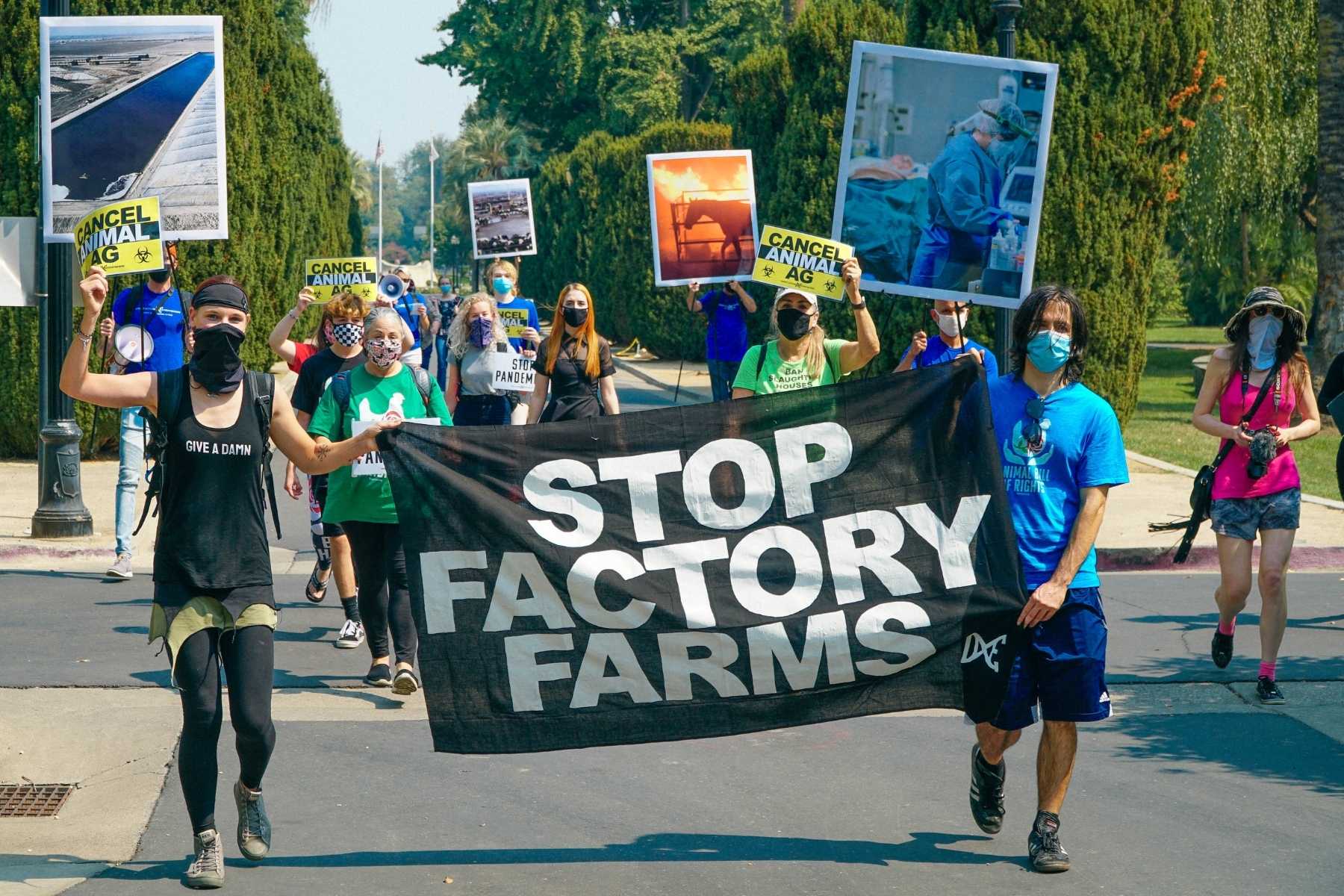
Conclusion
When we do harm to one, we do harm to all. We cannot keep extracting, consuming, and wasting the Earth’s resources without causing significant harm to animals, wild places, and people. It is essential that minoritized communities are included in decisions that affect them and their health. It is also essential that each of us understands the repercussions of our own choices and actions. The fastest way to reduce our own ecological impact, and to reduce the environmental harm done to minoritized communities, is to move towards a plant-based diet.
Let us support you as you revolutionize your diet! Check out our free 7-Day Vegan Challenges: for Humanity, for the Planet, for Animals, or for Health.



